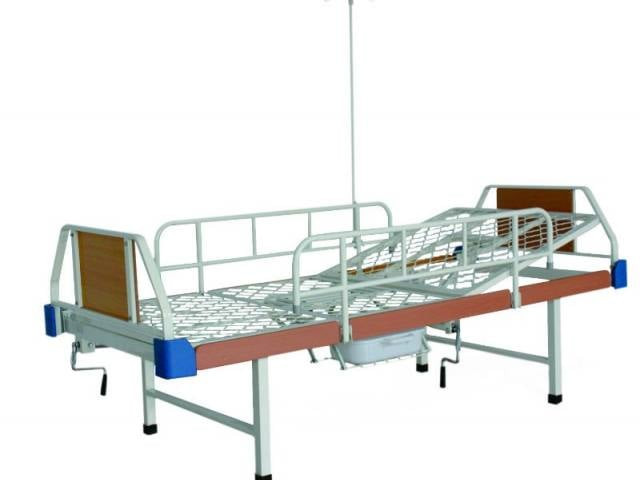Health woes of Sindh: ‘Hospital beds have become deathbeds’
Doctors lambast their colleagues, government for the health problems plaguing the province.

Dr Isani questioned the audience that if pregnancy was not a disease, why did mothers die during delivery. PHOTO: FILE
Pakistan is a developing country and is plagued by a multitude of problems at the grass-roots levels. Under these circumstances, the women and children are the most vulnerable and therefore, need special attention.
These views were expressed by Dr Zeenat Isani at a seminar, titled ‘Health problems of Sindh’, held at the Sindh Institute of Urology and Transplantation, Sukkur, on Wednesday.
Dr Isani questioned the audience that if pregnancy was not a disease, why did mothers die during delivery. She revealed that Pakistan had one of the highest child mortality rates in the world and most of these children died before they reached the age of five. A majority of these deaths can be attributed to trauma at the time of birth, premature births and infections causing diarrhoea and pneumonia. Dr Isani blamed the health department for failing to control child mortality. She advised the audience to genuinely start caring for mothers instead of simply celebrating mother’s day.
Professor of medicine Dr Mashoor Alam termed diabetes the mother of all diseases as it adversely affected all the vital organs. He was of the opinion that educating the patient regarding dietary and physical activities, combined with proper medication, could substantially reduce the hazards presented by the disease. According to him, dialysis and transplant were not the solution; rather, prevention was key.
Former health secretary Dr Muhammad Azeem Almani lamented that, as a nation, Pakistanis were very ill-disciplined and despite having 167 medical colleges and 16 medical universities, we had failed to deliver. He decried the state of government health facilities, saying that the hospital beds had come to be regarded as deathbeds due to the doctors’ negligence. “Yesterday, 40 quacks were arrested from Karachi and one of them was a barber,” he said. The barber justified his wrongdoing by saying that if corrupt people could rule the country then why couldn’t he become a doctor, he added, lamenting the sorry state of affairs.
He blamed doctors for neglecting their duties, saying that unsterilised syringes and instruments were being used in health facilities even today.
Sharing his experience as the health secretary, he recalled that most MPAs would visit his office for the transfer of doctors and establishment of basic health units in their respective areas, instead of focusing on the interests of the people of their constituency.
There are 2,700 basic health units and 60 taluka hospitals in Sindh, but not a single consultant can be found in these facilities, he said. Dr Almani found it ironic that the Sindh government was spending Rs10 billion to provide drugs to government health facilities, but people failed to get any medicine from these hospitals.
According to him, most of the hospitals in rural Sindh were well-equipped, but there was nobody to use them. “Asif Ali Zardari and Nawaz Sharif will not bring any change in your lives,” he said, addressing the citizens at large. “We must join hands to bring positive change.”
Renowned orthopaedic surgeon Professor Dr Ali Mohammad Ansari highlighted the benefits of modern surgery, saying that the root cause of health problems in Pakistan was that we neglected primary health care.
“Merely constructing buildings for hospitals doesn’t make any difference,” he said. “We need dedicated people such as Dr Adibul Hassan Rizvi who can make a difference.”
Published in The Express Tribune, May 15th, 2014.



















COMMENTS
Comments are moderated and generally will be posted if they are on-topic and not abusive.
For more information, please see our Comments FAQ